Bollywood borrowed skilfully from Alfred Hitchcock: Richard Allen
New Delhi, Aug 1 (IANS) 'Jewel Thief', the colourfully romantic and funny thriller starring Dev Anand, Vyjayanthimala and Tanuja, made by Vijay Anand in 1967 had borrowed liberally from Hollwyood's master of suspense, Alfred Hitchcock.
Published: Friday,Aug 01, 2008 18:55 PM GMT-06:00
New Delhi, Aug 1 (IANS) 'Jewel Thief', the colourfully romantic and funny thriller starring Dev Anand, Vyjayanthimala and Tanuja, made by Vijay Anand in 1967 had borrowed liberally from Hollwyood's master of suspense, Alfred Hitchcock.
The thriller was a loose remake of 'Vertigo' and 'To Catch a Thief' - two very different genres of Hitchcock's thrillers, Richard Allen, professor, chair of Cinema Studies in the New York University (IANS had wrongly mentioned his university as Columbia in a story it ran July 31), told IANS over lunch at the India Habitat Centre last Saturday.
With its scintillating soundtracks and a racy plot, the movie held audiences spellbound and cash tills ringing.
'The Jewel Thief' established that Indian filmmakers of the Fifties, Sixties and the Seventies could skilfully and cleverly use Alfred Hitchcock as their role model while making suspense thrillers.
'Be it the plot, use of flashy colours like red, modern lifestyles and nail-biting suspense - the movie was perhaps the best adaptation of Hitchcock thrillers,' Allen said.
According to him, 'Jewel Thief' also showed that Bollywood was finally becoming a spiffy consumerist haven, where protagonists were allowed freedom of sexual choices and professions - even if it was that of a burglar that Dev Anand played in the movie.
The lead played by Dev Anand was very close to the one Cary Grant played in the movie, 'To Catch a Thief'. The storyboard in which a reformed thief realises that someone else was using his tactics to pull off heists, also matched.
Dev Anand played Vinay and Amar - the son of a police commissioner, who is obsessed with gemstones and jewellery, and a wily thief who steals jewellery from shops respectively.
'Jewel Thief' also wove in scarier aspects from another Hitchcock murder mystery, 'Vertigo', where the hero, detective Scottie (played by James Stuart) suffers a 'nervous breakdown' in a game of double identities and entendre, one of Hitchcock's pet themes, Allen explained.
'Bollywood has borrowed liberally from filmmaker Alfred Hitchcock. His stylised cinematography found its way into several thrillers in the decades spanning the Fifties to the Seventies,' the film researcher-cum-writer, who is also an authority on Bollywood movies, said.
Allen was in the capital July 26-27 to conduct a two-day workshop, 'Hitchcock in Bollywood', at the India Habitat Centre.
The film writer and critic probed the Hitchcockian idiom and style of cinematography in the stylised language of Hindi commercial cinema through exhaustive discussions and screenings of Bollwyood remakes for two days.
Allen, who has edited two books of essays on Alfred Hitchcock, is also the co-editor of a publication on the filmmaker, 'The Hitchcock Annual'. His latest publication is titled, 'Hitchcock's Romantic Irony.'
Hitchcock, explains Allen, is a visual stylist and a commercial filmmaker who provided models and pretexts to filmmakers to do the same thing.
Remember 'Kohra'? The supernatural black-and-white 1964 thriller starring Biswajeet and Waheeda Rehman with its memorable soundtrack and some of the most spine-chilling sequences of the ghost of the dead first wife haunting the second one (played by Waheeda Rehman), asks Allen.
It was modelled on 'Rebecca' and 'Pyscho', two of Hitchcock's masterpieces, he divulges.
'Rebecca', a movie based on a novel by Daphne de Maurier published in 1938, starred Lawrence Olivier and Joan Fontaine. It used used the 'ghost' of a dead first wife as it's ghostly and thriller element, while 'Psycho' narrated the hair-raising tale of a psychopath, who murdered women, mostly in their baths, and dismembered their bodies, Allen said.
'Kohra' had lifted a bath sequence from 'Psycho' and the ghost of the first wife, who had been poisoned to death, from 'Rebecca'.
Hitchcock, warns Allen, is not easy to adapt into Hindi mainstream cinema because it requires dexterity. 'Chiefly because Hitchcock is a master of the craft of cinema and in handling matters of human sexuality.
'It is difficult to place Hitchcock's movies in the context of a Hindi (sic Indian) lifestyle and the old world appeal of Bollywood movies of the 50s, 60s and the 70s,' Allen said.
The film-researcher cites three more recent examples- 'Samay, 'Ek Baar' and 'Aanamika', which have used Alfred Hitchcock as models. 'Anamika, made this year, is a remake of 'Rebecca'. The appeal of the movie lies in its dramatisation,' Allen said.
Plots apart, the black and white Bollywood thrillers of the Sixties and the Seventies also used Hitchcock's ingenuous camera techniques to convey the elements of 'supernatural and mystery'.
One such technique was the 'slipping in' effect. Executed through a mirror in 'Kohra', it was as if the characters were walking through a mirror and floating out from the other side, Allen said.
'The nature of sounds and music also took off from Hitchcock. The songs seemed to be emanating from another world and enveloping you. The Bollywood remakes of Hitchcock movies also used the strong sexual metaphors that Hitchcock inserted into his films - like drops of water on a woman's face, sweat, nervousness, all a symbolising latent sexual frisson in intimate sequences of intrigue and passion,' the professor explained.
Even the conventional Bollywood characters morphed under Hitchcock's influence. For instance, the role of the husband changed. 'Movies influenced by 'Rebecca' portrayed husbands as threatening and ambiguous,' Allen said.
Join Our WhatsApp Channel
Stay updated with the latest news, gossip, and hot discussions. Be a part of our WhatsApp family now!
Join NowYour reaction
 Nice
Nice Great
Great Loved
Loved LOL
LOL OMG
OMG Cry
Cry Fail
Fail

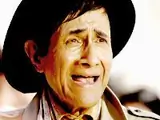
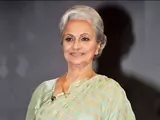
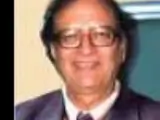
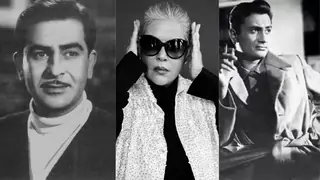

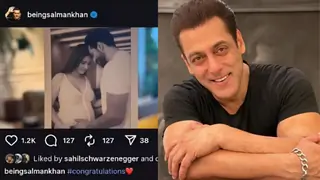

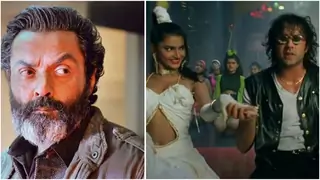





1 Comment